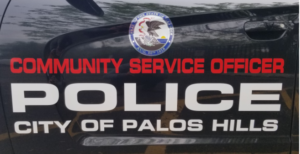Investigation Division
The Palos Hills Police Department manages criminal cases to enhance clearance rates of reported crime and to increase prosecutions, convictions of offenders and return of property to victims.
The criminal investigation division is responsible for follow- up investigations on criminal matters. Once an incident is reported to the police department, the supervisor of the investigation division assesses the information in the report. The supervisor will make a determination, based on solvability factors, whether a follow-up investigation will be warranted.
Once the determination is made that an investigation is warranted, the supervisor will assign the case to a detective. The detective will contact the victim and gather any additional information that may be beneficial to the investigation. The investigator will work the case to its conclusion, whether it results in arrest, no complaints being signed or not enough information for an arrest.
If the investigator does not have enough information for an arrest, he will submit his investigation to the supervisor, who will determine if the case will become inactive. The supervisor will review the case to insure all leads have been exhausted. If there are no additional leads, the supervisor will place the case in the inactive file.
The investigation division supervisor will periodically review inactive cases. He will check to see if additional leads have been developed or if the incident may be tied to another victim. He may re-activate the case if developments warrant it.
Patrol Division
The patrol division is considered to be the primary division of the police department. Officers assigned to this division are our most visible representative. Their responsibilities are many. They must respond to calls for service, enforce law, maintain order, protect life and property, engage in preventive patrol, and arrest offenders, in addition to a myriad of other duties.
The patrol division works twenty four hours a day, in three shifts: Midnights, days, and afternoons. Each shift is staffed with at least one supervisor (a lieutenant or sergeant) and several officers. Each supervisor conducts a roll call before the shift begins it’s tour of duty. The purpose of roll call is to brief the officers on incidents which have occurred; train; exchange information; inspect uniforms, equipment and squads; and similar type matters.
Emergency Assistance- Dial 911
Do not call the non-emergency number if you need a squad to be dispatched to your location. Call 911 whenever you need to speak to an officer. The 911 service is provided by the southwest central dispatch which is not located in the police headquarters.
The non-emergency communications staff located at the Palos Hills Police Headquarters take general messages for the police department and greet walk-ins to the Police Department, they do not dispatch squad cars. The non-emergency communications people also forward messages to the investigation divisions from citizens with information regarding illegal activity. The detectives will review the messages and respond to the caller as soon as possible.






